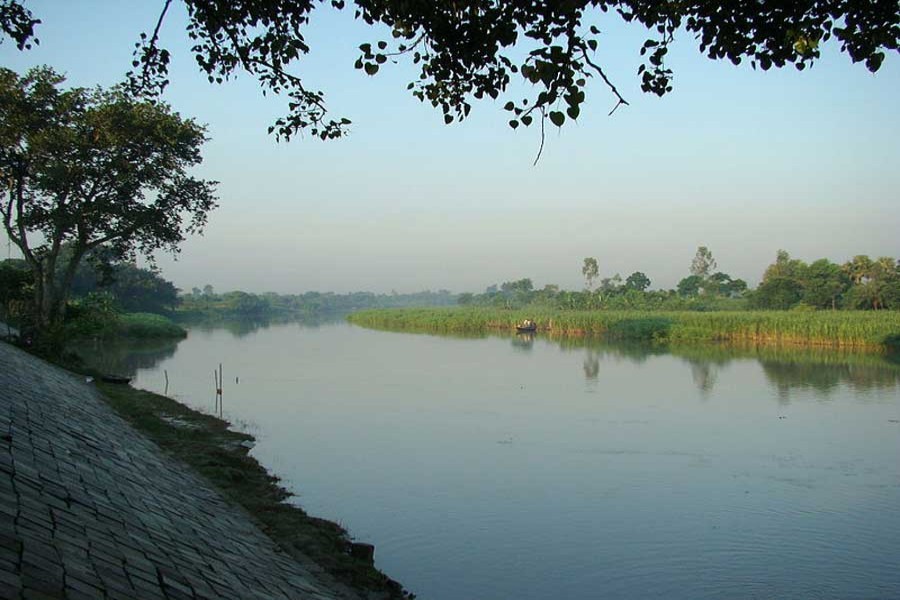International Farakka Committee (IFC) in a statement on Sunday urged the concerned governments to ensure an uninterrupted flow of water from all common rivers in the region.
It said the flow of all common rivers is a must to avert any imminent environmental disaster, according to a UNB report.
The statement said the signing of a Memorandum of Understanding between Bangladesh and India for withdrawal of 153 cusecs of water from Bangladeshi river Kushiyara has created an adverse reaction in the minds of the people.
The Kushyara has suddenly been brought to the fore although there is no indication of signing of the long-awaited Teesta treaty, it said.
The IFC said that a clear move to deprive Bangladesh of water during dry season in common rivers is visible. Water flow in 52 out of 54 common rivers is already being diverted.
Now lean season flows are available only in the Brahmaputra and the Meghna, notwithstanding numerous barrages on those or their tributaries upstream. Kushiyara and Surma are distributaries of the Barak River divided into two near the border with India.
Already a barrage on the Barak at Phuler Tala diverts over 10,000 cusecs of water. Withdrawal water of Kushiyara and Surma will render the Meghna and the haors (depressions) of Sylhet dry.
It is to be noted that since the commissioning of the Farakka Barrage the annual water flow of the Ganges has come down to one-tenth from 500 billion BCM to 50 billion BCM.
As a consequence of this the south-western part of Bangladesh has experienced an environmental disaster.
In the absence of fresh water flow the UNESCO said World Heritage Site--the Sundarbans--is facing disaster for excessive salinity in water. Saline water has intruded from the sea to the Hardinge Bridge point, deep inside the country.
In the words of the State Minister for Foreign Affairs Shahriar Alam the Teesta Treaty is still at assurance stage, said the IFC adding, the entire Teesta water is being diverted from the Gajaldoba Barrage in West Bengal for about two decades.
In the absence of the flow of this major river, the Northwestern part of Bangladesh has been going through a process of desertification, the IFC said.
The Gumti which was once called the sorrow of Cumilla, now does not have water even in the monsoon season.
It said that the very existence of Bangladesh, the largest delta in the world created by the common rivers over the millennia, has been threatened as it has been disconnected from the natural systems. The environment, ecology, ecosystem, life and livelihood of this riverine country are suffering as a result.
The government should immediately take steps to ensure flows of the common rivers in order to save the country from environmental disasters caused by manmade reasons, said the IFC.
The signatories to the statement are: Atiqur Rahman Salu, chairman, Sayed Tipu Sultan, secretary general, IFC New York, Prof. Jasim Uddin Ahmad, president, Dr. S.I. Khan, senior vice-president, and Syed Irfanul Bari, general secretary of IFC Bangladesh and Mostafa Kamal Majumder, IFC coordinator.


